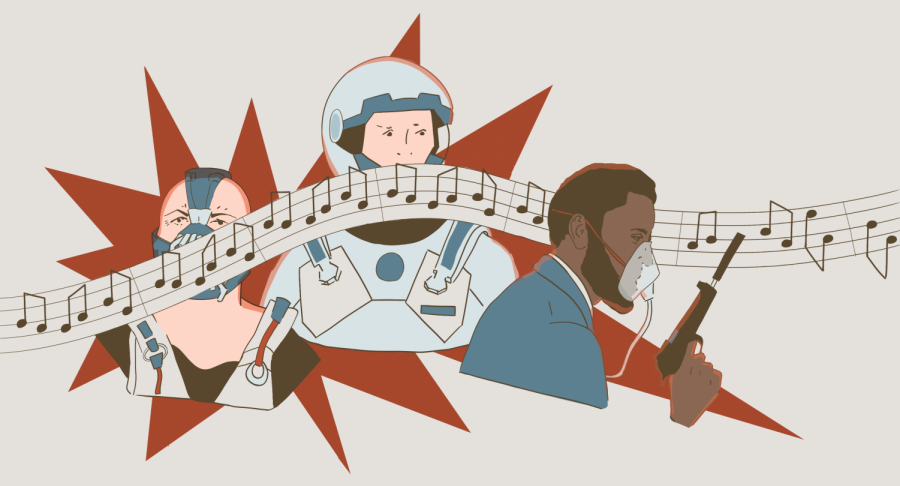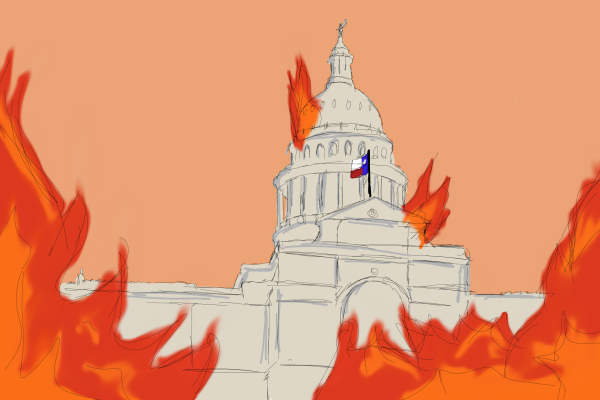The Sound of Christopher Nolan
The director has faced backlash over his audio decisions
To quote what is probably one of the most iconic lines from Christopher Nolan’s work: “BWAAAAAAAAAAHHHHHH!”
All jokes aside, Christopher Nolan is easily one of the most well-known directors in the film industry. He started off in the sort of independent circuit with “Memento,” but then shot all the way up into main-stream success.
However, there’s one big thing: 2020’s “TENET” was somewhat divisive upon release. Part of this was due to Nolan demanding to release his film in theaters in spite of the pandemic, and another part was due to this film continuing his trend of having thin characters and overly convoluted plots being propped up by its performances and setpieces. But the biggest complaint I’ve seen is that his trend of having uneven sound mixing has hit rock bottom. And with that complaint, I’d like to note that I personally do not wholly believe that his sound mixing is really worth complaining about; however, it is still somewhat of an issue.
These complaints started with 2012’s “The Dark Knight Rises.” At select IMAX screenings of the previous year’s “Mission: Impossible – Ghost Protocol,” audiences were treated to a prologue of Nolan’s final Batman movie. The film starts with the masked villain Bane crashing the plane that he has been captured on. However, there was a strong filter over the character’s voice, and many audience members complained that it was incredibly difficult to hear what he was saying throughout the scene. Although Nolan was headstrong and seemingly refused to change the respirator-sounding filter (as he had stated that it was necessary in the film’s context), the final film does appear to have significant audio dubbing for Bane’s dialogue in order to make his dialogue easier to understand. But alas, we live in a world where you just can’t please everybody, and to this day, people are still complaining about his dialogue being hard to understand. Granted, I haven’t had any issues with any of Bane’s scenes, although I’m willing to admit that this could be because of the sheer amount of times I’ve watched the movie.
A similar complaint was made with the 2014 science-fiction epic “Interstellar,” as there are many scenes where dialogue is obscured either because of the sounds of the spaceship, muffling due to the character’s space helmets or the swelling of Hans Zimmer’s score. And granted, I can definitely understand the issue that people have with this. For example, Michael Caine has a scene in which he’s delivering some very important dialogue, and I am not kidding when I tell you that I had absolutely no idea what he had said until the next scene where another character basically just addresses what he said. It’s a mix of his lines being said way too softly (another issue in Nolan’s work) as well as Zimmer’s score being too overpowering. And the thing is that this would be completely okay if the dialogue wasn’t as important as it was.
Speaking of which, I would argue that this is done the best in Nolan’s WWII drama “Dunkirk.” The movie is incredibly loud, and the dialogue is constantly drowned out by the sounds of planes and gunfire and bombs or even Hans Zimmer’s score. However, this is a film where the dialogue doesn’t really matter. The whole point of the film is to depict the terror and spectacle of war. The film does still have a story and exposition to get parts of the story across, but the thing is that it’s very easy to understand without the use of heavy exposition and dialogue. The overpowering sound mixing puts the audience in the same position as the soldiers in Dunkirk, and it is a fantastic stylistic choice.
But finally, this issue has come to a head with 2020’s “TENET.” Remember how I said that “Dunkirk” had a very simple story that didn’t require buckets of exposition to explain itself to its audience? “TENET” is not like that. The film is much more akin to Nolan’s “Inception” in terms of them both having a very complicated plot that requires the audience’s utmost attention to make sense of it all. But in “Inception,” the exposition was relatively easy to hear, whereas “TENET,” in spite of requiring you to listen to every damn word, has music so insanely loud that it makes the experience of watching the film incredibly frustrating at times, especially if you watched it in theaters. I have a very good setup for watching films at home, and even then, it was very difficult for me to watch “TENET” without the use of subtitles. But then when watching on my laptop with a headset, I was perfectly capable of understanding everything, or at least I could actually hear everything being said.
And that’s something that Nolan really needs to work on in the future. If you’re going to make a film that doesn’t rely on dialogue to convey every piece of information to the audience, then go apeshit. Be as loud as you want. But if the dialogue is incredibly complicated to the point where one missed piece of information will leave audiences confused, then please edit the sound mixing so that the dialogue isn’t drowned out by music. And even more so: If you’re going to demand that audiences watch the film in theaters, then make sure that the audio mixing is good in the version of the film released in theaters rather than the digital version on VOD.

Hey guys! My name is Om Dighe, and I'm an arts columnist specializing mainly in movies, television and video games. I'm from Spring, Texas, and I'm a...















